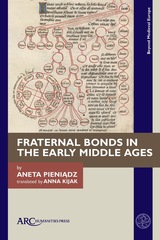
One of the most exciting recent developments in the study of Chinese literature has been the rediscovery of an extremely rich and diverse tradition of women's writing of the imperial period (221 BCE-1911 CE). Many of these writings are of considerable literary quality. Others provide us with moving insights into the lives and feelings of a surprisingly diverse group of women living in Confucian China, a society that perhaps more than any other is known for its patriarchal tradition.
Because of the burgeoning interest in the study of both premodern and modern women in China, several scholarly books, articles, and even anthologies of women's poetry have been published in the last two decades. This anthology differs from previous works by offering a glimpse of women's writings not only in poetry but in other genres as well, including essays and letters, drama, religious writing, and narrative fiction.
The authors have presented the selections within their respective biographical and historical contexts. This comprehensive approach helps to clarify traditional Chinese ideas on the nature and function of literature as well as on the role of the woman writer.

What is the relationship between history and fiction in a place with a contentious past? And of what concern is gender in the telling of stories about that past?
Writing Women in Central America explores these questions as it considers key Central American texts. This study analyzes how authors appropriate history to confront the rhetoric of the state, global economic powers, and even dissident groups within their own cultures. Laura Barbas-Rhoden winds a common thread in the literary imaginations of Claribel Alegría, Rosario Aguilar, Gioconda Belli, and Tatiana Lobo and shows how these writers offer provocative supplements to the historical record.
Writing Women in Central America considers more than a dozen narratives in which the authors craft their own interpretations of history to make room for women, indigenous peoples, and Afro-Latin Americans. Some of the texts reveal silences in the narratives of empire- and nation-building. Others reinterpret events to highlight the struggle of marginalized peoples for dignity and humanity in the face of oppression. All confront the ways in which stories have been told about the past.
Yet ultimately, Professor Barbas-Rhoden asserts, all concern the present and the future. As seen in Writing Women in Central America, though their fictions are historical, the writers direct their readers beyond the present toward a more just future for all who live in Central America.

When was feminism born—in the 1960s, or in the 1660s? For England, one might answer: the early decades of the seventeenth century. James I was King of England, and women were expected to be chaste, obedient, subordinate, and silent. Some, however, were not, and these are the women who interest Barbara Lewalski—those who, as queens and petitioners, patrons and historians, and poets took up the pen to challenge and subvert the repressive patriarchal ideology of Jacobean England.
Setting out to show how these women wrote themselves into their culture, Lewalski rewrites Renaissance history to include some of its most compelling—and neglected—voices. In these women, Lewalski identifies an early challenge to the dominant culture—and an ongoing challenge to our understanding of the Renaissance world.
READERS
Browse our collection.
PUBLISHERS
See BiblioVault's publisher services.
STUDENT SERVICES
Files for college accessibility offices.
UChicago Accessibility Resources
home | accessibility | search | about | contact us
BiblioVault ® 2001 - 2024
The University of Chicago Press









